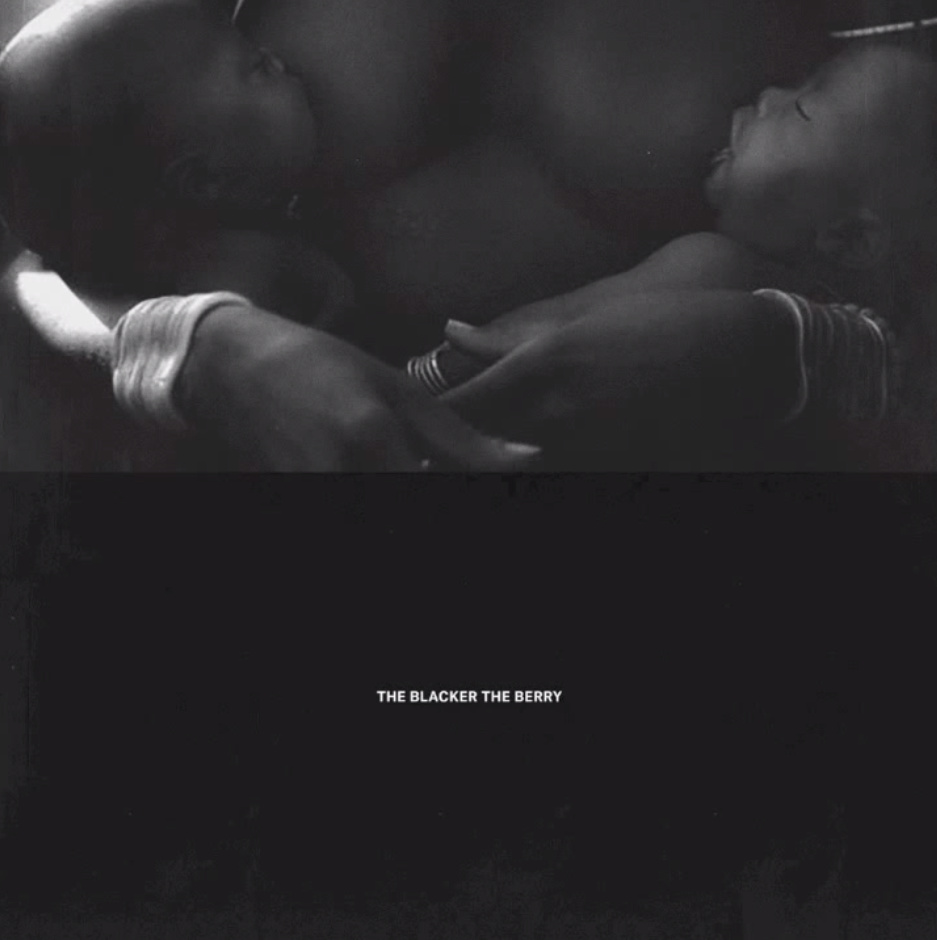You’re not telling Brian Josephs that “The Blacker The Berry” isn’t a slight dedication to Chad L. Coleman.
The loudest voice is often the most vapid. Kanye West exemplified this. He eclipsed Beck’s moment, proceeded to call him out for not respecting “artistry,” and just did ‘Ye stuff. That’s your consensus “fuck the Grammys” moment: West inadvertently giving a bunch of old, out-of-touch, mostly white men credibility. The truer “fuck the Grammys” moment was more understated and came during Prince’s Album of the Year presentation: “Albums—you remember those? Like books and black lives, they still matter.” Of course albums should, Prince. Hundreds of thousands of approving head nods came with Prince’s latter sentiment. Because we’re really just watching industry circle-jerking while other human beings are on the verge of collapse because of melanin — whether by inner nihilism or the various constructs designed against them. Then, not even a day later, we get “The Blacker The Berry.”
And Lamar just got his first two Grammys for “i” — of all songs. “i” wasn’t bad (ed. note — yes, it was), but I was apathetic to it. The Isaac Brothers sample wasn’t imaginative. Plus, oh look, he’s talking about self love. Fair enough. But what stands out about “i” wasn’t just its divisiveness; we just didn’t need an “i.” It’s not that we’ve become cynical, but its context made it less of a public service announcement and more naiveté. Lamar is often at his best when towering walls of tragedy lurk over his verses. “The Blacker The Berry” triples the height of those walls. It’s not just a rightfully angry black man making a song for the times that make this stick. It’s the scope. It extends further than the recognizable reference to 2Pac or the clattering discordance of Boi-1da’s production — to which Lamar mutters, “Black don’t crack my nigga,” observing the social squalor surrounding him.
Decades later, Lamar still rages over the same thing 2Pac and east coast forerunners Public Enemy, X-Clan, and Dead Prez raged over: the fear of black bodies, institutionalized racism, communities torn asunder by police. While 2Pac struck with pathos, Lamar delivers a more panoramic piece. The fight described is a centuries-long one that still continues, and it’s told in roughly chronological order in the first two verses. This is a story of a great fall. Of an entire people stripped of their culture and being forced to reclaim their dignity after being labeled less than human (“You hate my people, your plan is to terminate my culture/ You’re fuckin’ evil I want you to recognize that I’m a proud monkey”). Of people being forced to live second-class citizenship long after the Emancipation Proclamation (“Church me with your fake prophesying that/ I’mma be just another slave in my head Institutionalized manipulation and lies”). “The Blacker The Berry” is an epic — temporally and spatially linked together by the perpetual sense of struggle that African-American culture has faced to survive. Dancehall artist Assassin’s hook and the jazz outro flourish cohesively in the space.
The first two verses raise the stakes for the third verse — the part where Lamar gets to making the songs for our times. This is also where it’s vividly clear he isn’t speaking from the soapbox, but instead from a youth seeing lives taken by Piru-Crip wars. So, after the witticisms (“I’m black as the heart of a fuckin’ Aryan”), we get a closing thesis that’s given more power:
“So don’t matter how much I say I like to preach with the Panthers/
Or tell Georgia State Marcus Garvey got all the answers/
Or try to celebrate February like it’s my B-Day/
Or eat watermelon, chicken, and Kool-Aid on weekdays/
Or jump high enough to get Michael Jordan endorsements/
Or watch BET cause urban support is important/
So why did I weep when Trayvon Martin was in the street? When gang banging make me kill a nigga blacker than me?”
It was only weeks ago Lamar was catching heat for preaching alleged black respectability politics. The idea of “preaching” is absurd here. Why would Lamar preach to the increasing number of ghosts surrounding him? With that, the song ends. King Kendrick retakes his throne.
And why does all of this matter? He’s the rare black voice on the mainstream platform who’s illuminating those truths with that sort of urgency. The kind that hits you in the chest and gestates within your skull. That’s rare. Lamar’s third album may be a classic project. It may also be a mess. Obviously, many hope for the former. But for now, we feast and unpack “The Blacker The Berry” — a track that’s cathartic and arrives with a list of casualties.


